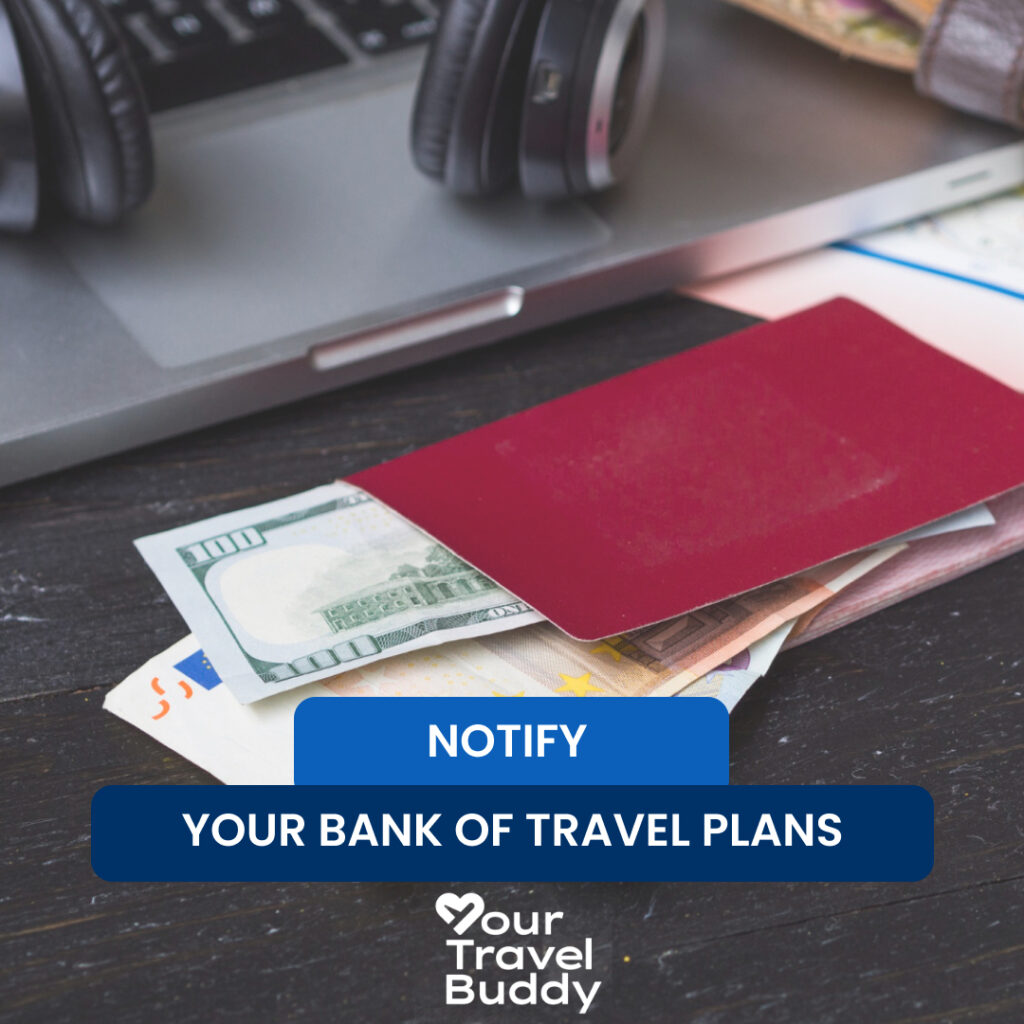When traveling internationally, one of the most inconvenient experiences is having your credit or debit card declined at a foreign destination. This often happens because banks flag transactions from new locations as potentially fraudulent. To avoid this, it’s crucial to notify your bank about your travel plans ahead of time. Here’s why this simple step is essential for smooth travels and how you can do it efficiently.
Why You Should Notify Your Bank
Banks and financial institutions use sophisticated systems to monitor transactions and detect suspicious activity. If they notice an unexpected charge from a foreign location, especially if it’s far from your home country, it might trigger an automatic block on your card for security reasons. While this is meant to protect you from fraud, it can cause significant inconvenience, especially when you’re trying to pay for something important, like a hotel room or a meal.
By notifying your bank of your travel dates and the countries you’ll be visiting, you can ensure your transactions won’t be flagged as suspicious. This not only avoids the stress of dealing with a blocked card but also allows you to focus on enjoying your trip.
How to Notify Your Bank
- Online Banking or Mobile App: Most banks make it easy to set travel alerts through their online banking portals or mobile apps. Simply log in, navigate to the section where you can update account settings, and input your travel details. Be sure to list all the countries you’ll visit and the dates.
- Phone Call: If you prefer, you can call your bank’s customer service line to inform them of your upcoming travel plans. Have your account information ready and provide details about your trip.
- In-Person Visit: If you’re old-school or just want peace of mind, you can visit your local bank branch to notify them of your travel plans. This can also give you a chance to ask about other services your bank offers to travelers, such as travel insurance or lower foreign transaction fees.
Additional Tips for Managing Your Money While Traveling
- Consider a Travel-Friendly Card: Some credit and debit cards are specifically designed for travelers and offer perks like no foreign transaction fees or higher rewards for international purchases. If you travel frequently, this could be a smart addition to your wallet.
- Carry a Backup Payment Method: Even if you notify your bank, it’s always a good idea to carry an extra credit card or some local currency in case your primary method of payment doesn’t work.
- Use Bank ATMs for Cash Withdrawals: To avoid high exchange rates and fees at foreign exchange kiosks, use your bank’s ATM or a partner ATM network to withdraw local currency.
- Monitor Your Accounts: Regularly check your bank statements while traveling to ensure there are no unauthorized transactions. If anything looks suspicious, contact your bank immediately.
Conclusion
A little planning goes a long way when it comes to managing your finances abroad. By notifying your bank before you travel, you can avoid the frustration of declined cards and focus on enjoying your trip. With this travel tip from YourTravelBuddy, you’ll be one step closer to a smooth and stress-free adventure!
Stay tuned for more travel tips to help you navigate your journeys with ease! ✈️🌍
